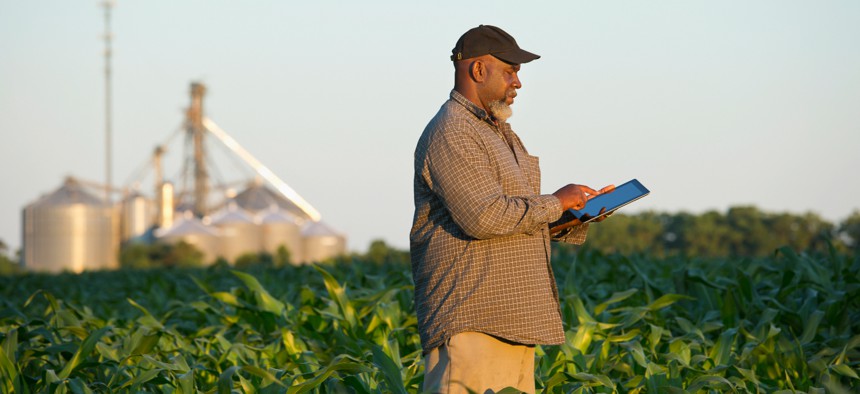Proposed law aims to boost food and agriculture industry’s cyber posture

Ariel Skelley/Getty Images
The bill would direct multiple stakeholders to conduct exercises that simulate when the food and agriculture sectors are hacked.
A bipartisan, bicameral bill introduced Thursday is giving food and agriculture officials hope that their industry can be better protected against cyberattacks.
The Farm and Food Cybersecurity Act led by Sens. Tom Cotton, R-Ark., and Kirsten Gillibrand, D-N.Y., would require the agriculture secretary to run a survey every two years on the state of cyber vulnerabilities and threats to the food and agriculture sectors, as well as work with major intelligence community officials to run exercises that simulate industry-disrupting cyberattacks.
The U.S. Agency for International Development has previously said that cyberattacks on agriculture supply chains can threaten global food security because increasing digitization of the sector allows hackers to disrupt farming equipment.
“Attacks on smart farming and on precision agriculture devices can threaten yields and, if mounted on a large enough scale, can pose a serious risk of widespread hunger and economic damage at a local, regional, or even national level,” said the USAID report released in October.
The Department of Agriculture did not respond to a request for comment.
Like any major sector, food production and agriculture can face various cyberattacks, like social engineering or denial of services that overload web traffic of a site until it is brought down.
Ransomware is also a major risk to the sector, researchers say. JBS USA, a meat processing subsidiary of Brazil-based JBS SA, paid an $11 million ransom to hackers that disturbed the company’s operations in North America and Australia in 2021. Broadly speaking, Malwarebytes reported that cyberattacks against the food and agriculture sector increased just over 600 percent in 2020.
Several industry groups have given their support to the bill, according to a release from Cotton’s office. Those include the American Farm Bureau Federation and Chamber of Commerce.
“As farmers and ranchers work to be more sustainable while feeding a growing population, they are integrating more technologies into their operations and are more connected than ever. With new technology comes additional risks and we must remain vigilant against the bad actors who wish to disrupt our food systems," Emily Buckman, director of government affairs at AFBF, said in a statement.
Editor's note: This article has been updated to include AFBF's statement.






